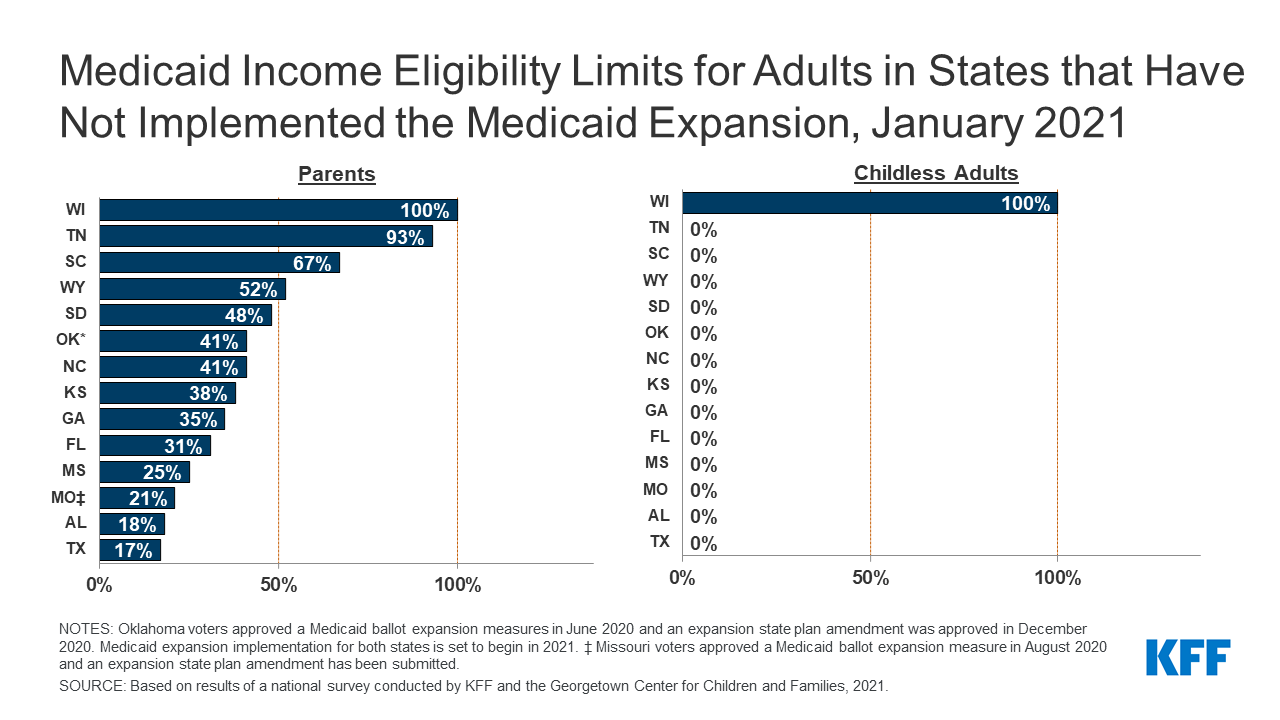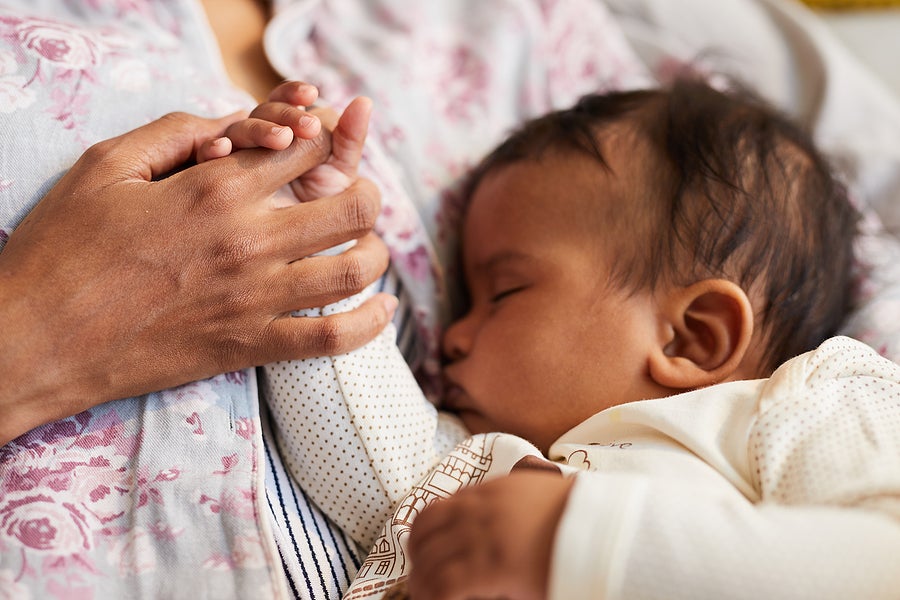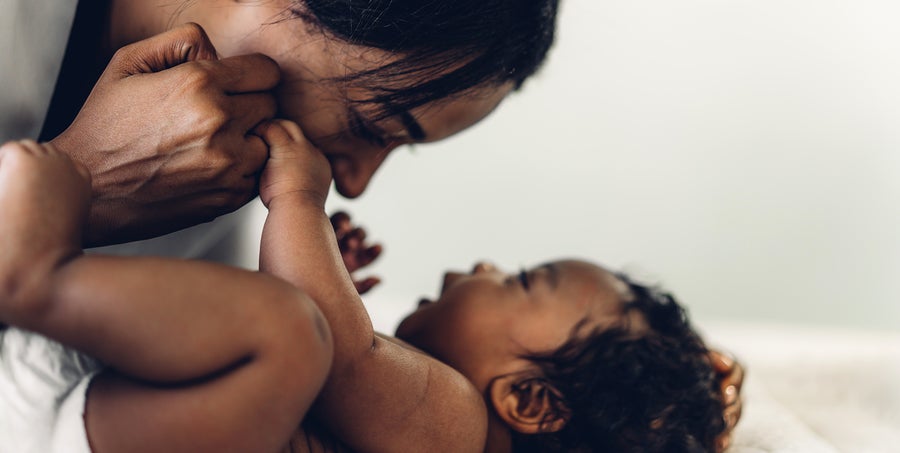Maternal & Early Childhood Health
-
Georgia and Missouri Postpartum Medicaid Waiver Approvals Promote Limited Coverage
As Say Ahh readers know, there have been bursts of Section 1115 demonstration activity since the start of the year. April was no different, bringing another flurry of actions from CMS. This time, however, there were some new demonstration approvals that promote coverage, albeit in a more limited way than we would have liked to…
-
HHS Secretary Becerra Approves Illinois Waiver Request to Extend Postpartum Medicaid Coverage
New mothers in Illinois will now be able to stay eligible for Medicaid and CHIP coverage for one year after delivery under a Medicaid Section 1115 waiver approved today by the Centers for Medicare and Medicaid. The approval allows Illinois to receive federal matching funds for providing an additional 10 months of pregnancy-related Medicaid and…
-
Implementing American Rescue Plan’s 12-month Postpartum Medicaid Coverage: Federal and State Actions
Federal matching funds for the American Rescue Plan Act’s new state Medicaid option to provide 12 full months of postpartum coverage won’t be available *officially* to states until April 2022. (Say Ahhh! Readers know that the Families First Coronavirus Response Act requires states to keep all Medicaid beneficiaries enrolled, including postpartum women, so no coverage…
-
Maggie Clark Talks Maternal Health with Marketplace
Listen as Maggie Clark discusses the importance of postpartum Medicaid coverage with Sabri Ben-Achour of Marketplace. Maggie Clark with the Georgetown Center for Children and Families said that “when women lose this coverage after 60 days, about half of them become uninsured. So that’s a million new mothers every year who are losing coverage every…
-
Optional 12 Months Postpartum Medicaid Coverage Leaves Opportunity to do More
Tucked inside the American Rescue Plan signed into law by President Biden last week is a Medicaid state plan option allowing states to offer pregnancy-related Medicaid and CHIP coverage for one year after the end of pregnancy, extending coverage well beyond the current cutoff of 60 days postpartum. The option, which is the result of…
-
Medicaid and CHIP Eligibility, Enrollment, and Cost Sharing Policies as of January 2021: Findings from a 50-State Survey
Executive Summary During the coronavirus pandemic, Medicaid has played a key role in providing coverage to millions of people who have lost their jobs or their health coverage. In addition, provisions included in the Families First Coronavirus Response Act (FFCRA) and the Coronavirus Aid, Relief and Economic Security (CARES) Act require states to maintain eligibility…
-
Medicaid Expansion’s Effects on Families: More coverage, improved maternal health, better preventive care
We’ve been tracking the rates of uninsured children for more than a decade now, and after reaching an all-time low in 2016 nationwide, the number started going in the wrong direction over the past three years. From 2016 to 2019 approximately 726,000 more children became uninsured. The report we released today looks more closely at…
-
Critical Health Equity Context Needed in New Maternal and Infant Health Data Profile
Just before the end of 2020, CMS published a valuable new trove of data on indicators of maternal and infant health in Medicaid, designed to create a profile of the health status of pregnant and postpartum women and their infants. The information is part of several new reports and learning communities launched by CMS to…
-
Limited Postpartum Medicaid Coverage Extensions are a Missed Opportunity
States are continuing to push for extending Medicaid coverage for postpartum women beyond the current federal cutoff of 60 days after the end of their pregnancy. Just in the last month, three more states submitted waiver applications to CMS: Indiana, Georgia, and Texas. Before the end of the year, we submitted comments on Indiana’s limited…
-
Study on Intergenerational Health Mobility Provides Strong Case for Early Childhood Interventions
Examining how children’s health compares to the health of their parents can offer valuable insight into the individual, family, and community-level factors that affect a child’s health status. This is the aim of a new Health Affairs article from Jason Fletcher and Katie Jajtner at the University of Wisconsin-Madison, which seeks to bring an intergenerational…
-
New CCF-Commonwealth Fund Report Highlights Long-Term Benefits of Medicaid Coverage for Pregnant Women and Children
A new report written by my colleagues Edwin Park, Allie Corcoran and I for the Commonwealth Fund examines and summarizes the growing body of research documenting the long-term benefits of Medicaid eligibility for pregnant women and children. Because Medicaid/CHIP expansions were phased in over time, and states reacted on different timetables to federal options and requirements,…
-
Medicaid Expansion Increased Preventive Care for Pregnant and Postpartum Women, New Study Finds
Medicaid expansion increased the use of key preventive health services by women before and after pregnancy, a new study published in Health Affairs found. The findings add to the evidence that expanding Medicaid coverage to all low-income adults does translate into more utilization of preventive care that can improve the health and wellbeing of women…
-
Medicaid and CHIP Coverage for Pregnant Women: Federal Requirements, State Options
Introduction Medicaid and the Children’s Health Insurance Program (CHIP) are key supports for pregnant women and new mothers, as well as their children in the critical early years of life. Medicaid pays for nearly half of all births in the United States, including a greater share of births in rural areas, among young women, and…
-
States Can Do More to Improve Medicaid and CHIP Pregnancy and Postpartum Coverage, Advance Maternal and Child Health Equity
Each year, Medicaid pays for nearly half of all births in the United States, including a greater share of births in rural areas, among young women, and women of color. Medicaid and CHIP also cover close to half of the nation’s children under age 3, making it the largest source of coverage for infants and…
-
Postpartum Depression Can Persist Well Beyond a Child’s First Birthday – Medicaid Should Adjust Accordingly
Postpartum depression can last up to three years, new research from the National Institute of Health has found, and symptoms can often emerge well after the first months following delivery and get worse over time. The findings, published in the journal Pediatrics, suggest that providers, particularly pediatricians, should screen new mothers for depression through at…
-
ACA Improved Health Care Access and Affordability for New Mothers, Report Finds
We often get asked whether increases in health coverage rates result in more people getting care. In the case of new mothers following the implementation of the ACA’s major coverage provisions in 2014, a recent report from the Urban Institute shows the answer for this group is yes. In the years following the 2014 coverage…
-
New Resources Underscore Importance of Adult Health Coverage to Young Children’s Well-Being
The news on the health and economic crises remains harrowing. The political debates about the best ways to address both can be numbing. Racism was already a public health crisis in the minds of many—the pandemic has only exposed and exacerbated what was not fully seen or acknowledged before. But it’s the poorest families, many…
-
House Passes Bill to Give States Option to Extend Postpartum Medicaid Coverage to New Moms
Medicaid and CHIP cover nearly half of all births each year and have critical roles to play to ensure access to postpartum care that supports the lifelong health of mother and baby together. The Helping MOMS Act, passed with a bipartisan majority voice vote in the U.S. House of Representatives this week, would give states…
-
Rural Disparities, Racial Disparities, and Maternal Health Crisis Call Out for Solutions
Maternal health access and care were already in crisis before COVID-19, and the pandemic has further laid bare the racial and geographic disparities experienced by pregnant women and new mothers across the country. Last month we submitted comments in response to CMS’s request for information on improving access and quality of maternal health in rural…
-
Confronting Maternal Mortality Crisis: New Resources Track State Progress on Extending Medicaid Postpartum Coverage
Before the COVID-19 pandemic, addressing the maternal mortality crisis was among the highest policy changes on the priority list for state lawmakers and health officials. COVID-19 has further exposed the fault lines that create health disparities between racial, ethnic, income, and other groups. As the virus has spread, it is communities of color, low-income communities…



















